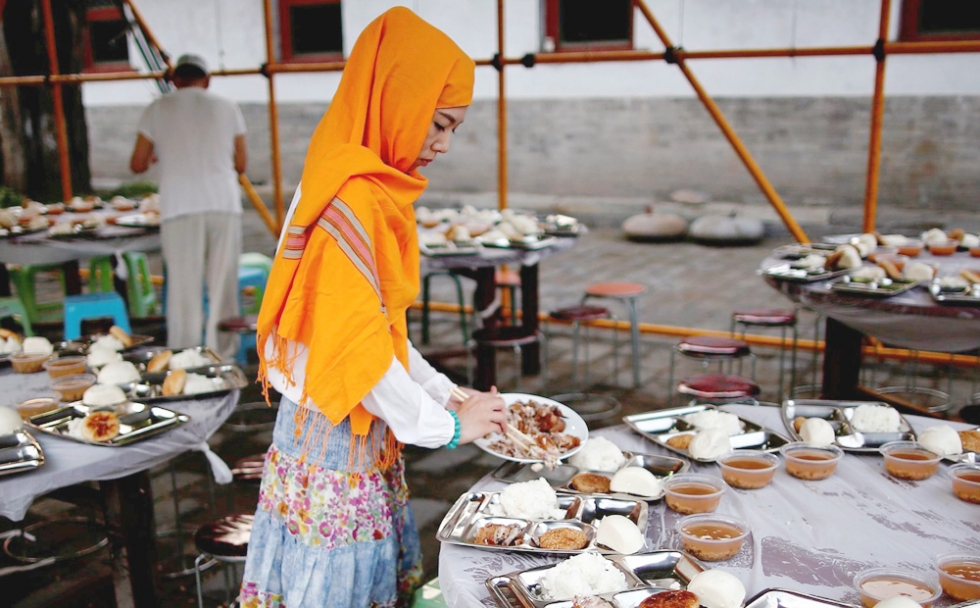Beijing has taken a variety of actions in its efforts to tame ethnic unrest in Xinjiang. While there are plans targeting economic inequalities between Han Chinese and Muslim Uighur–plans which would likely improve ethnic relations–many policies impose increased restrictions on Uighurs, which may further escalate tensions. Particularly, some rallies and policies resemble the tactics used in the Chinese Cultural Revolution era, and they may deepen the mistrust and the divide between the government and Uighurs.
Massive migration of Han Chinese into Xinjiang from other parts of China has been encouraged for the past few decades. Equally massive investments into infrastructure and industrial development have greatly increased the economic output of Xinjiang, ranking it among the top performing provinces in China. But jobs created have gone overwhelmingly to Hans, who now make up more than 40% of the province’s 22m people.
Besides economic inequality, Uighurs grievances have been exacerbated by officials’ intolerance of Islamic traditions and their emphasis on Chinese instruction in schools. For example, during Ramadan, officials put pressures on teachers, students and civil servants not to observe fasting rituals.
The most recent unrest in Kashgar prefecture on July 28, the end of the holy month of Ramadan, is the bloodiest in Xinjiang since the riots in 2009. More than 100 people died and more than half of these deaths were alleged terrorists gunned down by police. Beijing blamed terrorists for this action, but Uighurs activists abroad claimed it was sparked by the enforcement of bans against fasting.
After this tragedy, one city in early August temporarily banned people who donned certain Muslim clothing from taking public buses during a sporting event hosted by the city. Public signs illustrated the banned styles, and portrayed women in full and partial veils and headscarves and men with full beards and even modest goatees. It is worth noting, however, that is was a city-level policy and not publicly endorsed by the central government. It is possible local officials enacted such rules to impress Beijing. Even before the July 28 incident, the capital Urumqi had banned bus passengers from carrying items ranging from cigarette lighters to yogurt, with restrictions similar to those of airlines.
There is a rising concern that Chinese policies include excessive use of deadly forces in controlling Uighur militants. In some cities, patrolling SWAT units have already been authorized to shoot dead suspected terrorists without warning. A recent Associated Press review of articles by China’s state media found that at least 323 people have died in Xinjiang-related violence since the escalation of the unrest started in last April. Almost half of those deaths were inflicted by police gunning down alleged perpetrators.
The government’s increasingly repressive security measures make it difficult to clearly understand what fueled the July 28 incident and whether the deaths of alleged perpetrators in associated episodes are justifiable. Police routinely stop foreign journalists from approaching trouble-spots. Social media are rigorously censored. Kashgar police stop motorists going into and out of Uighur sections of the city, checking identity cards and belongings. Crimes meriting detention can include carrying too much petrol–the substance could be used for bomb-making.
Beijing likes to claim that Uighurs live in harmony with Han Chinese. In reality, while Uighurs resent Hans for the economic inequality and cultural restrictions, Hans often feel that Uighurs are ungrateful to the generous provided by Beijing. Wang Lixiong, a Chinese scholar and minority rights activist who sees tensions in Xinjiang as rapidly descending into “Palestinization,” in which there is mutual ethnic hatred between groups.
Despite the strikingly amateurish appearance of most of the attacks (rarely do perpetrators use anything other than knives), Beijing’s rhetoric on every violent episode is focusing on the “rare minority” terrorists who practice jihadism and the external influence of Islamist militancy seeping across the border from Afghanistan and Pakistan.
The Economist cautioned Beijing in its coverage of the July 28 tragedy that in making jihadism the core of the Uighurs’ militancy, China may risk changing the current home-grown grievance into the complex religion-embedded conflicts that are much harder to settle. As seen in recent months, the violence has been morphing, spreading beyond the region itself and taking on some of the hues of jihadism elsewhere—through suicide-attacks and indiscriminate killing of civilians.
People are put into jails on terrorism-related charges. Singapore Asia One reported that some mass public sentencings are reminiscent of China’s Revolutionary-Era rallies. Authorities have encouraged neighbors and friends to inform on each other. Urumqi policy in May posted rewards for tips on everything from terrorism training to growing long beards. Last Thursday, China’s state media revealed the newest rewards scheme, offering up to one million Yuan (US$160,000) for terrorism-related tips.
Such grassroots security monitoring is undeniably important in preventing further damages, but this kind of spying is risks deepening the mistrust between Han Chinese and Uighurs as well as causing the deterioration of relationships even within exclusive communities. Alleged terrorists are called “People’s Enemy.” This term was last used over 50 years ago during the Revolution-Era for landlords, counter-revolutionaries, vagabonds, prostitutes, capitalists, marketeers, foreigners and intellectuals. That movement to crush landlords in the countryside consequently disintegrated the close-knit communities that had previously existed.
While the damage to Uighur-Han Chinese relationships from these rewards-for-tips schemes are speculative, the real damage was done on July 30, when Ilham Tohti, a prominent Uighur scholar, was charged with separatism. Mr. Tohti is widely considered a moderate advocate for better treatment of Uighurs (never called for separation or violence). His prosecution will silence moderate Uighurs who hardly embrace jihadism but are still angry about the ethnic policies. However, this estranges Uighurs further and leaves them more vulnerable to fall prey to extremists.
Opinion by Tina Zhang

1 thought on “Beijing May Turn Grievances Caused By Repressive Ethnic Policies Into Stronger Ethnic Hatred, Leaving Xinjiang More Vulnerable to Jihadism”
Comments are closed.